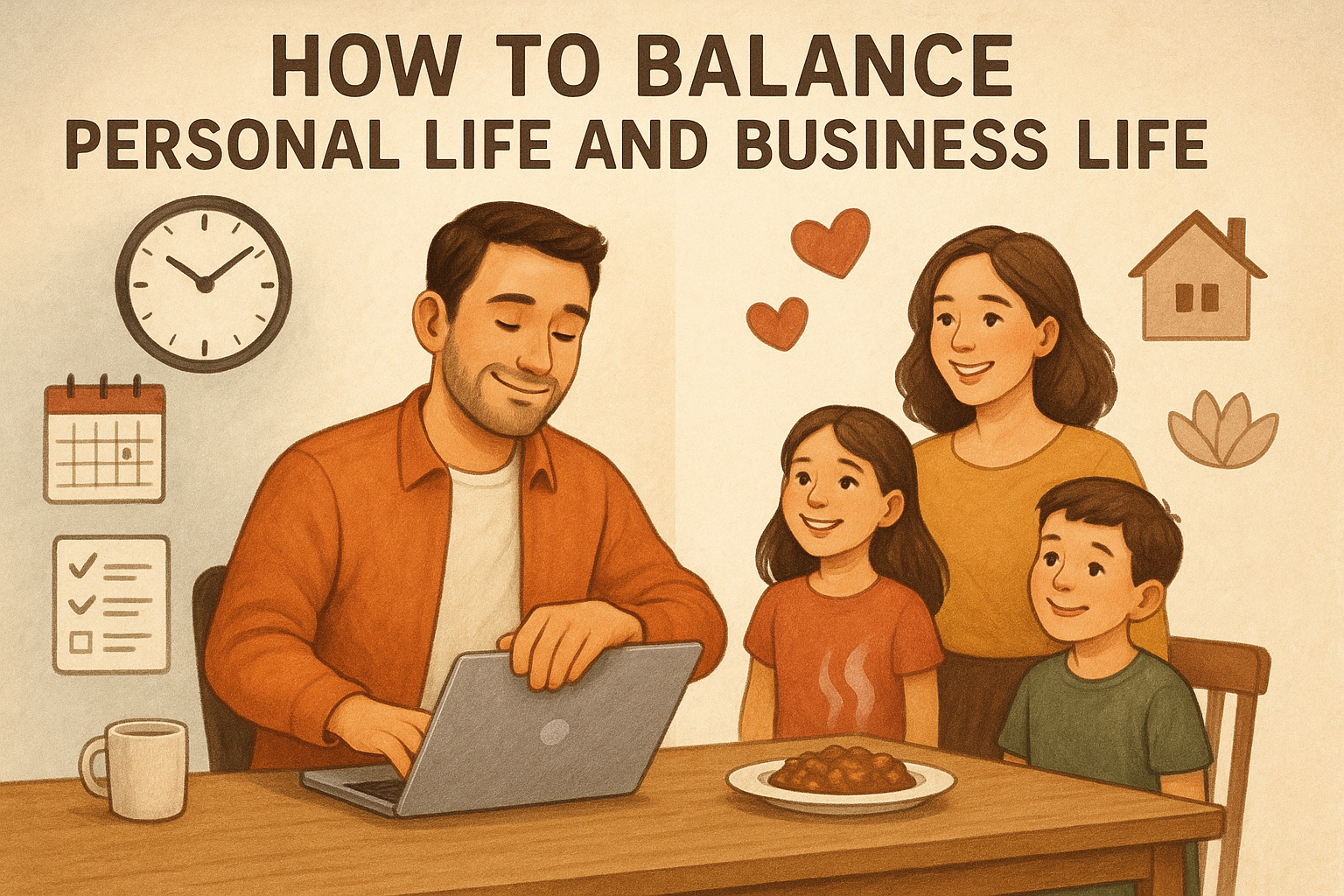For many entrepreneurs, running a business feels like a 24/7 job. While passion and dedication are important, neglecting personal life can lead to burnout, stress, and even harm business performance. True success means finding balance—where both your business and personal life thrive together.
This article will explore practical strategies for small entrepreneurs to balance work and personal life without sacrificing growth or well-being.
Why Balance Matters
- Health: Constant stress affects both physical and mental health.
- Relationships: Family and friendships can suffer without attention.
- Productivity: Exhaustion reduces focus and creativity.
- Sustainability: A balanced lifestyle ensures long-term success.
Balance isn’t about splitting time equally—it’s about making space for what matters most.
Step 1: Set Boundaries Between Work and Personal Life
Entrepreneurs often blur the line between work and home. Clear boundaries protect both areas.
Tips:
- Set specific work hours and stick to them.
- Create a dedicated workspace separate from personal spaces.
- Avoid checking emails during family time.
Boundaries create structure and respect for personal life.
Step 2: Prioritize Your Time
Not all tasks deserve equal attention.
How to prioritize:
- Identify the most important business tasks each day.
- Use time-blocking to dedicate hours to both work and personal activities.
- Say no to tasks or events that don’t align with your priorities.
Prioritization prevents overwhelm and creates balance.
Step 3: Delegate and Automate
Trying to do everything yourself leads to burnout.
Solutions:
- Delegate tasks to freelancers, employees, or partners.
- Automate repetitive tasks (emails, invoicing, scheduling).
- Focus on activities only you can do.
Delegation frees time for both business growth and personal life.
Step 4: Take Care of Your Health
Healthy entrepreneurs run healthier businesses.
Habits to maintain:
- Exercise regularly, even in short sessions.
- Eat balanced meals instead of skipping or rushing.
- Sleep at least 7 hours to recharge.
Your body is the engine that powers your business—treat it well.
Step 5: Schedule Personal Time
If you don’t schedule personal time, work will always take over.
Ideas:
- Plan family dinners or outings in your calendar.
- Block time for hobbies or relaxation.
- Take vacations, even short ones, to recharge.
Personal time is an investment in your well-being.
Step 6: Learn to Disconnect
Technology makes it easy to always be “on.” Learning to disconnect is crucial.
Tips:
- Set phone-free hours daily.
- Turn off work notifications during weekends or evenings.
- Use separate devices for work and personal life, if possible.
Disconnecting allows true rest and presence with loved ones.
Step 7: Seek Support
Entrepreneurship is demanding, but you don’t have to handle it alone.
Support systems include:
- Family and friends who encourage balance.
- Mentors who provide guidance.
- Entrepreneur communities where experiences are shared.
Support helps you manage stress and stay grounded.
Step 8: Embrace Flexibility
Balance doesn’t always mean equal time—it means adapting. Some weeks business may demand more, others personal life may need priority.
The goal is not perfection, but flexibility that respects both sides of life.
Final Thoughts: Balance Is Part of Success
Entrepreneurship should bring freedom, not constant stress. By setting boundaries, prioritizing, delegating, caring for health, and making time for personal life, small entrepreneurs can achieve balance that sustains both business and happiness.
Remember: success is not only about profits—it’s also about living a fulfilling life while building your dream.
